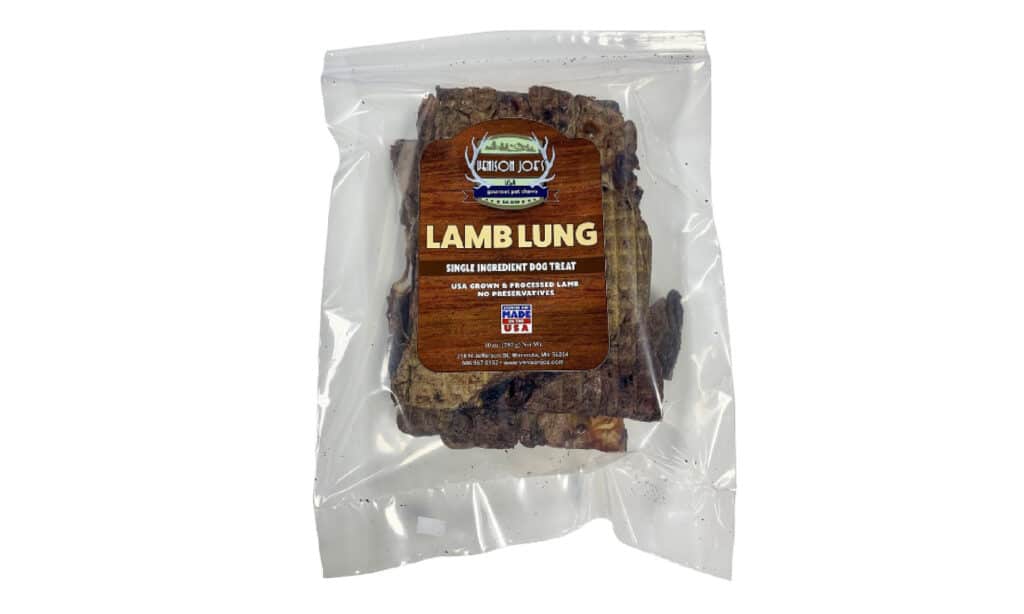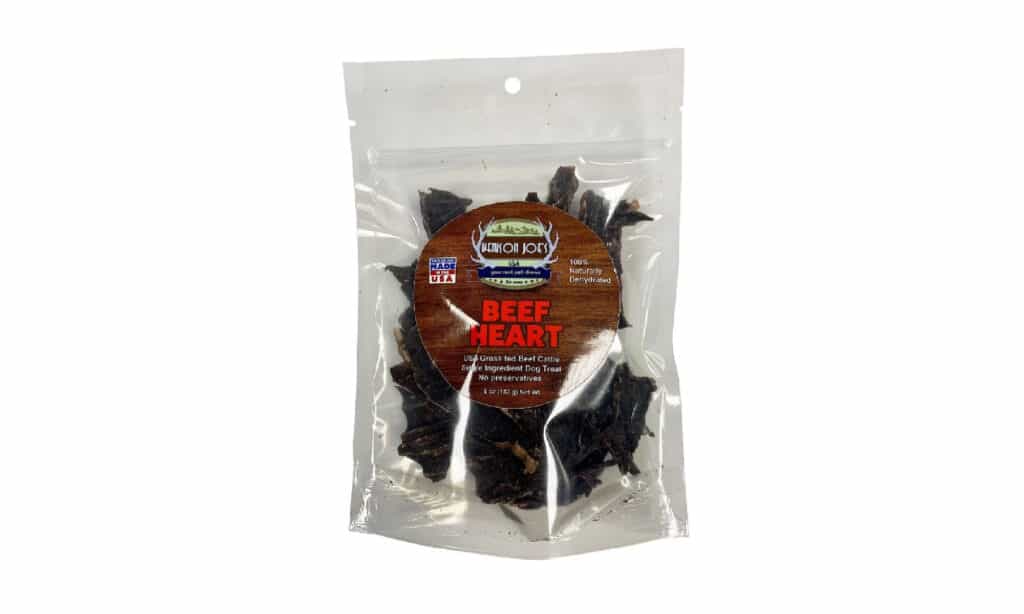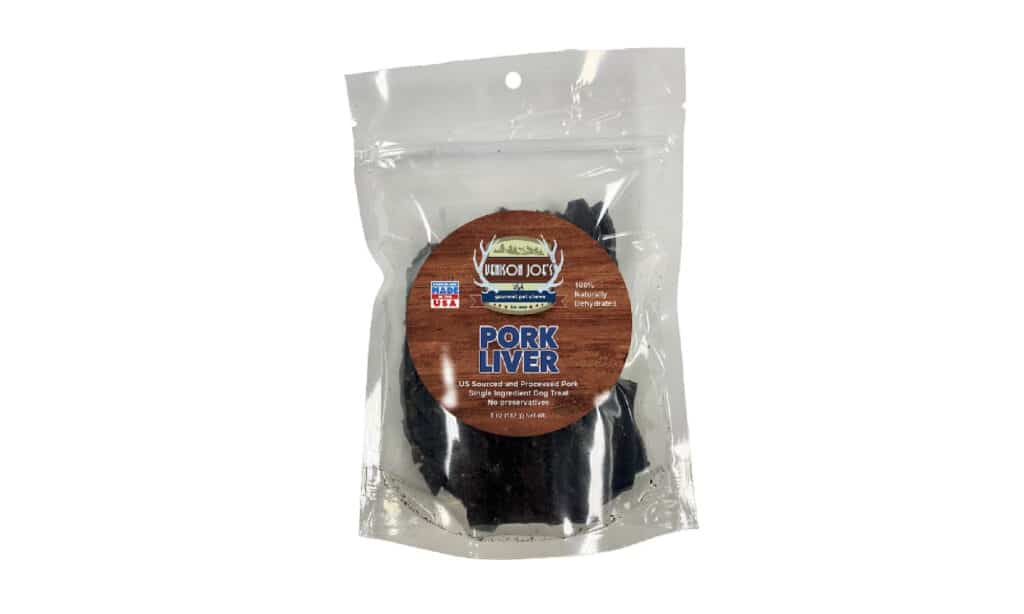Liverwurst is a type of sausage that’s made from liver and other ingredients such as spices, onions, and sometimes bacon. It’s a popular food item for humans, but what about dogs? As a dog owner, you may be wondering whether it’s safe to feed your furry friend liverwurst as a treat or as part of their regular diet. In this blog post, we’ll explore the nutritional benefits and potential risks of feeding liverwurst to dogs, as well as provide some tips on how to safely incorporate it into their meals. So, if you’re curious about whether dogs can eat liverwurst, keep reading to find out.
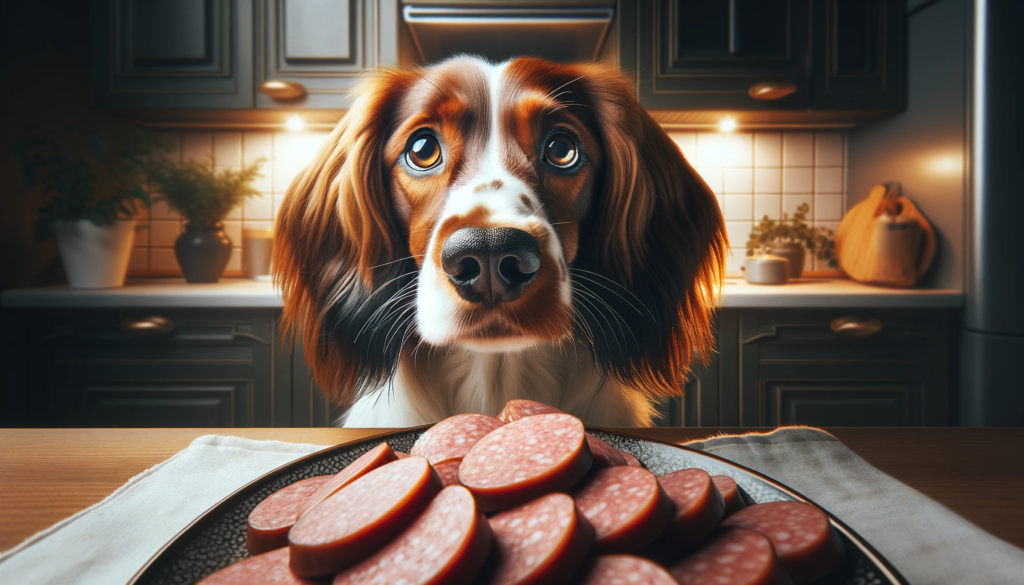
What Is Liverwurst?
Liverwurst is a type of sausage that people make from liver, pork, and some other stuff like spices, onions, and sometimes bacon. It’s pretty darn popular in lots of places, especially in Europe and North America. People usually cut it up and put it on bread or crackers, and sometimes they add mustard or pickles to make it even tastier. There are all sorts of liverwurst out there, made with different kinds of liver like chicken or beef, and some are smoked or cured while others are fresh. You can usually find it at the grocery store or deli, and it’s a go-to for sandwiches or snacks with crackers. But if you’re a dog owner, you might be curious whether liverwurst is safe for your furry friend to munch on.
Can Dogs Eat Liverwurst?
So, can dogs chow down on liverwurst? The answer is a little complicated. Liverwurst is made from liver, which is usually pretty healthy for dogs when given in moderation. Liver is a good source of protein, vitamins, and minerals like iron and zinc. But, liverwurst also has other stuff in it that might not be so great for your furry buddy, like spices, onions, and too much salt and fat.
Eating too much salt and fat can be a no-no for dogs, and onions are downright poisonous in large amounts. Plus, liver can have a ton of vitamin A, which is dangerous for dogs when they have too much of it. So, if you do give your dog liverwurst, make sure it’s only every now and then, and not a huge part of their diet.
If you do decide to treat your pup, be sure to get fresh, natural liverwurst without any chemicals or fake flavors. Also, keep an eye on your dog’s weight and overall health when giving them liverwurst or any other treats. When you introduce a new food, go slow and small, and watch for any bad reactions. And if you’re not sure if liverwurst is a good choice for your dog, it’s always smart to check with your vet.
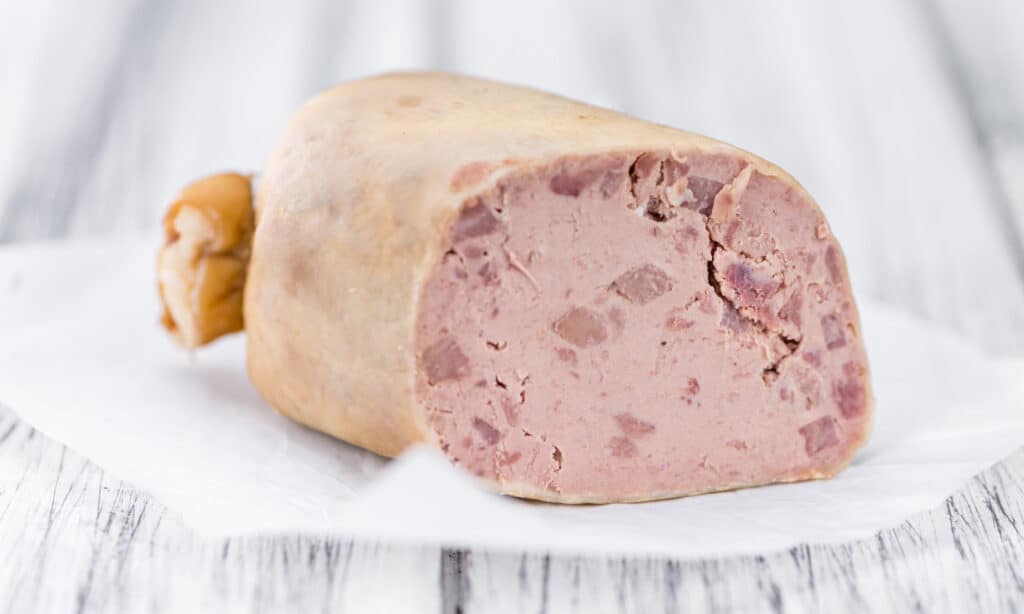
Harmful Ingredients in Liverwurst:
Liverwurst contains several ingredients that can be harmful to dogs if consumed in large quantities. One of these ingredients is salt, which can lead to dehydration, kidney damage, and other health problems in dogs when consumed in excess. Liverwurst also often contains onions, which are toxic to dogs and can cause anemia, vomiting, and diarrhea. Even small amounts of onions can be harmful to dogs, so it’s best to avoid giving them liverwurst that contains this ingredient.
Another harmful ingredient in liverwurst is fat. While dogs need a certain amount of fat in their diet, excessive consumption of fatty foods like liverwurst can lead to obesity, pancreatitis, and other health issues. Additionally, liverwurst often contains preservatives and additives such as nitrates and nitrites, which have been linked to cancer and other health problems in both humans and animals.
Finally, it’s worth noting that liverwurst is a processed food that is typically high in calories and low in nutritional value. While small amounts of liverwurst may be okay as an occasional treat for dogs, it’s not a food that should make up a significant portion of their diet. If you’re looking for healthier treat options for your pup, consider giving them fresh fruits and vegetables, lean meats, or low-fat dairy products instead.
Safe Ingredients in Liverwurst:
Yep, there are definitely some safe and even healthy ingredients in liverwurst that can be good for dogs in the right amounts. For example, liver is packed with protein, vitamins, and minerals that are great for dogs, like vitamin A, iron, and zinc. When liver is combined with other good stuff like lean pork or beef, and natural spices and flavors, it can be a yummy and nutritious snack for your pup.
But, it’s super important to watch out for other ingredients in liverwurst that can be bad for dogs, such as too much salt, onions, and too much fat. When you pick out liverwurst for your dog, go for a high-quality product that’s made with natural ingredients and doesn’t have any harmful additives or preservatives. And always give liverwurst to your dog in moderation, along with other healthy foods.
What Signs To Watch For If Your Dog Accidentally Ate A Lot of Liverwurst?
If your dog accidentally ate a lot of liverwurst, there are several signs you should watch for to determine if they are experiencing any adverse reactions. One of the most common signs of overconsumption of liverwurst is gastrointestinal upset, which can manifest as vomiting, diarrhea, or abdominal pain.
Other signs to watch for include dehydration, lethargy, and loss of appetite. If your dog has consumed liverwurst that contains onions, they may also experience symptoms of onion toxicity, such as weakness, pale gums, and rapid breathing. In severe cases, onion toxicity can lead to anemia, which can be life-threatening for dogs.
If you notice any of these symptoms in your dog after they’ve consumed a large amount of liverwurst, it’s important to contact your veterinarian right away. Your vet can evaluate your dog’s condition and recommend appropriate treatment, which may include administering fluids to prevent dehydration, medication to address gastrointestinal upset, or in severe cases, blood transfusions to address anemia caused by onion toxicity.
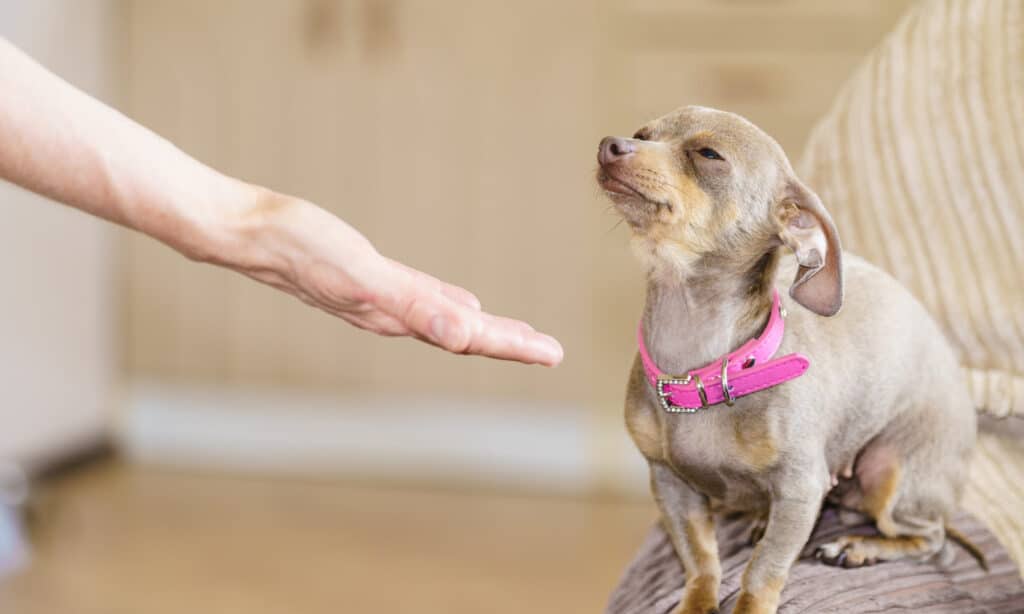
When or If You Should Go To The Vet?
If you notice any signs of illness or negative reactions in your dog after they’ve eaten a lot of liverwurst, it’s best to take them to the vet as soon as possible. If your dog starts throwing up, having diarrhea, acting tired or not wanting to eat, you should call your vet right away.
Also, if your dog ate liverwurst that had onions in it and they’re showing any signs of onion toxicity, like acting weak or having trouble breathing, you need to get to the vet immediately. Onion toxicity can be super dangerous for dogs and needs urgent care.
When you take your dog to the vet, be sure to give them all the information you have about your dog’s symptoms and how much liverwurst they ate. Your vet might want to do some tests, like bloodwork or x-rays, to find out what’s going on and how to treat your dog.
Safe Dog-Friendly Alternative to Liverwurst:
If you’re on the hunt for a healthier and safer treat option for your pup, fear not! There are plenty of tasty alternatives to liverwurst that your furry friend is sure to love. Here are a few ideas:
- Lean meats are a great choice! You can give your dog small pieces of chicken, turkey, or beef for a protein-packed snack.
- Fruits and veggies are also a hit with many dogs! Apple slices, carrot sticks, and green beans are low in calories and high in vitamins and fiber, making them a healthy and delicious choice.
- If your pup likes dairy, try giving them some plain yogurt or cottage cheese. These options are high in protein and calcium, and can even help with their digestion.
- Natural dog treats are a great option too! Look for treats made with high-quality ingredients like real meat, vegetables, and whole grains. And steer clear of treats with any artificial colors, flavors, or preservatives.
Remember to start slowly when introducing new foods to your dog, and always check with your vet if you have any concerns. Your furry friend will thank you for finding them a tasty and healthy snack!
Healthy Store-Bought Options:
In conclusion, while liverwurst can be a tasty treat for dogs, it’s important to be aware of its potential risks and to offer it in moderation. Liver is a nutritious food for dogs, but liverwurst often contains other ingredients that can be harmful in excess, such as salt, onions, and excessive amounts of fat.
Fortunately, there are plenty of safe and healthy alternatives to liverwurst that your dog is sure to enjoy. Lean meats, fresh fruits and vegetables, low-fat dairy products, and natural dog treats are all great options that provide your pup with a variety of nutrients and flavors.
As always, when introducing new foods or treats to your dog, it’s important to do so slowly and in moderation, and to watch for any signs of adverse reactions. And, when in doubt, always consult with your veterinarian for expert advice on your dog’s diet and health.
With a little bit of knowledge and creativity, you can find plenty of safe and delicious ways to spoil your furry friend and keep them healthy at the same time. Happy snacking!
~Lindsie

